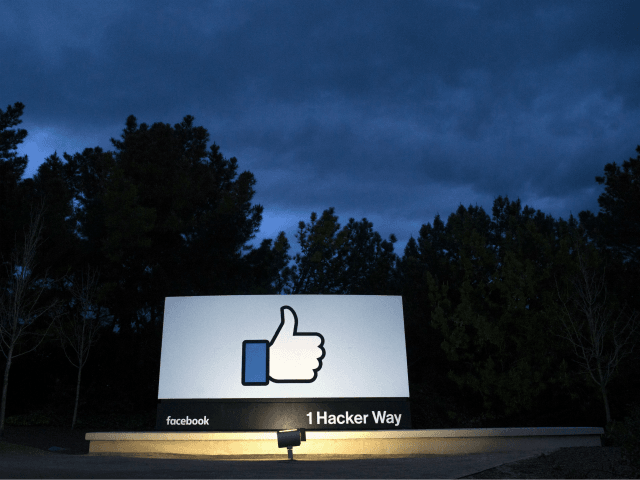Investor’s Business Daily charged in an editorial on Thursday that net neutrality advocates unintentionally “made the case” for regulating Google and Facebook.
This week a coalition of large tech giants, including Google, Facebook, and Twitter, urged a U.S. appeals court to challenge the Federal Communications Commission’s (FCC) repeal of the agency’s 2015 net neutrality rule.
The editorial board found regarding the agency’s Obama-era net neutrality, “Those 2015 rules were supposed to protect the ‘free and open’ internet by forbidding ISPs from, as the filing puts it, ‘engaging in discriminatory practices that limit consumer choice, competition, and innovation online.'”
The business publication noted that if one were to replace “Internet service provider” (ISP) with “Google, Facebook, etc.,” then “Google, Facebook, and the others end up making the case for imposing similar rules on their own businesses.”
Google and Facebook contended in their legal brief that ISPs such as Comcast or Verizon can act as “gatekeepers” between Internet users and content providers and can use that position to threaten internet openness. However, Investor’s Business Daily notes that both Google, Facebook, and Twitter have become Internet gatekeepers.
“In fact, these companies now brag about how they’re taking videos down, blocking content, deleting postings, removing pictures, that they don’t like,” the editorial emphasized. “In other words, they’re threatening internet openness.”
The Internet giants contend that ISPs are effective monopolies because the broadband market is not competitive enough to allow consumers to switch between ISPs if they disagree with their policies. The editorial notes that Google accounts for 89 percent of Internet search traffic, Facebook has 2.1 billion active users, and Amazon dominates online retail.
Google, Facebook, and Twitter added in their brief:
Absent conduct rules, the ‘virtuous cycle’ in which all participants in the internet ecosystem are able to prosper on account of open access to content has been replaced by a system in which ISPs have the incentive and ability to stifle both consumer choice and new online offerings.
Investor’s Business Daily retorts:
Again, there’s no evidence that ISPs do this. But there’s plenty of evidence that the so-called edge providers do. Just ask conservatives who’ve found their videos pulled down or demonetized on YouTube. Or their Facebook posts labeled as spam. Or their tweets shadow-banned.
Other notable figures have also called for the government to either investigate or regulate Google, Facebook, and Twitter’s dominant position on the Internet.
Sen. Orrin Hatch (R-UT) wrote a letter to Federal Trade Commission (FTC) on Thursday, urging the investigate Google’s anti-competitive practices.
“In light of all of these changes, I respectfully request that the FTC consider the competitive effects of Google’s conduct in search and digital advertising,” Hatch wrote in his letter to the FTC.
Former FCC Wireless Bureau Chief Fred Campbell contended that Congress should repeal Section 230 0f the Communications Decency Act, which Campbell contended allows social media giants such as Twitter, Google, Facebook, to censor without legal recourse.
“They’re subject to a legislative exception that is a couple decades old, overturning a century of law. If they want to play editor, great, then comply with the laws that all of the others editors comply with and give up your special exemption,” Campbell charged.
Campbell also said, “We the people should decide whether Google and Facebook can censor and block content.”
President Donald Trump promised to stand for free speech on Thursday and cautioned against the giant social media companies censoring conservative voices.
“I’ve made it clear that we as a country cannot tolerate political censorship, blacklisting, and rigged search results,” Trump said.
IBD suggested that they are not calling for a “return to ‘net neutrality,’ or for regulating Google, Facebook, etc.” They added, “But if Google, Facebook, Twitter, and others are going to insist on regulations, then they must be willing to play by the same rules. Otherwise, they’re just being opportunistic hypocrites.”

COMMENTS
Please let us know if you're having issues with commenting.